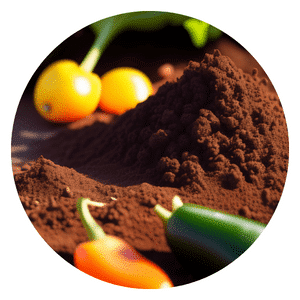How many zucchini do you get from one plant
If you’re planning on growing zucchini (Cucurbita pepo), one plant can yield a lot of fruit.
How many zucchini you get from one plant depends on the variety, how well it’s cared for, and the growing conditions.
Generally, you can expect to harvest about 3-6 zucchini per plant.
Chappy the Gardener, everyone’s favorite gardening enthusiast, has just released a guide on how many zucchini you can expect from one plant.
This guide is essential for anyone looking to maximize their zucchini yield this growing season.
Zucchini Menu
Which zucchini is most productive?
Zucchini is a popular vegetable to grow in the home garden. But which zucchini is most productive?
There are many different varieties of zucchini, and it can be hard to choose which one to grow.
Some factors to consider include the size and shape of the fruit, the plant’s disease resistance, and how productive it is.
So which zucchini is most productive? It depends on what you’re looking for. If you want a large quantity of small fruits, then the ‘Eight Ball‘ variety is a good choice.
For medium-sized fruits, ‘Black Beauty’ or ‘Costata Romanesco‘ are good options.
And if you’re after large fruits, ‘Cocozelle‘ or ‘Tromboncino‘ are worth considering.
What is the fastest growing zucchini?
Zucchini is a type of summer squash that is typically green in color. The plant produces both male and female flowers, with the female flowers being the ones that produce the fruit.
Zucchini plants are generally very productive, with a single plant capable of producing several fruits over the course of a growing season.
There are many different varieties of zucchini, but some of the fastest growing include ‘Black Beauty’, ‘Costata Romanesco’, and ‘Sunburst’.
These varieties can produce fruits that are 6-8 inches long in just 40-50 days from planting.
So if you’re looking to harvest zucchini sooner rather than later, these are some good varieties to consider.
Planting and care
Zucchini is one of the most popular vegetables to grow in home gardens.
They are easy to care for and produce an abundance of fruit.
Here are some tips for planting and caring for your zucchini plants:
When to Plant:
Zucchini can be planted as soon as the soil can be worked in the spring. To get a jump start on the growing season, you can start seeds indoors about 3 weeks before you plan to transplant them outdoors.
Where to Plant:
Zucchini need full sun and well-drained soil. They will sprawl, so give them plenty of room to spread out. You can plant several together in a hill or row.
How to Plant:
If you are starting with seedlings, transplant them into the garden after all danger of frost has passed.
If you have a small family or limited space, one or two plants should be sufficient. If you have a larger family or entertain often, three to five plants is a good number. And if you really love zucchini or want to preserve them for later use, six to eight plants is ideal.
Chappy The Gardener
Will zucchini continue to ripen after picked?
Zucchini plants are prolific producers and can yield several fruits over the course of the growing season.
However, the size of the individual fruits can vary greatly, so it’s hard to say exactly how many you’ll get from one plant.
As for ripening, zucchini will continue to soften and develop sweetness after being picked.
So if you’re not quite ready to use your zucchini, don’t worry – it will continue to ripen off the plant.
Just be sure to use it within a week or two for best quality.
How organic fertilizer can help your zucchini plants
Organic fertilizer can help your zucchini plants in several ways.
First, it can provide the nutrients that the plants need to thrive.
Second, it can help improve the soil quality, which will make the plants healthier and more productive.
Third, it can attract beneficial insects and other organisms that can help protect the plants from pests and diseases.
Horse manure
Horse manure is an excellent fertilizer for zucchini plants. It is high in nitrogen and other nutrients that help promote plant growth.
Horse manure also helps to improve soil drainage and aeration, which are both important for zucchini plants.
Applying horse manure to your zucchini plants will give them a boost of nutrients and help them to grow larger and produce more fruit.
For best results, apply the manure in early spring when the plants are just starting to grow.
You can apply it directly to the soil around the plants or mix it into the soil before planting.
Sheep manure
Zucchini plants are heavy feeders and require lots of nutrients to produce an abundance of fruit.
One way to provide those nutrients is by using sheep manure.
Sheep manure is rich in nitrogen, phosphorus, and potassium, which are essential for plant growth. It also contains other essential minerals and trace elements that promote vigorous plant growth.
Applying a layer of sheep manure around the base of your zucchini plants will give them a boost of nutrients that will help them produce more fruit.
Just be sure to not apply too much, as excessive nitrogen can lead to leafy growth at the expense of fruit production.
Green manure
Green manure is often used in gardening and agriculture, and can be extremely beneficial for zucchini plants.
It can help improve the quality of the soil, increase fertility, and even help suppress weeds.
It’s important to choose the right green manure for your zucchini plants, as some can actually be harmful.
Once you’ve found the perfect green manure, simply till it into the soil around your zucchini plants. You’ll see a difference in no time!
Fish manure
When it comes to zucchini, more is always better. One plant can easily produce 10 pounds of zucchini, which is why many gardeners find themselves with more squash than they know what to do with.
But did you know that fish manure can help increase the yield of your zucchini plants?
Fish manure is high in nitrogen, phosphorus, and potassium, which are all essential nutrients for plants. Nitrogen helps plants grow leaves and green stem tissue, phosphorus promotes root growth and flower production, and potassium helps with water absorption and photosynthesis.
By adding fish manure to your zucchini plants, you’ll be giving them a boost of all the nutrients they need to produce an abundance of fruit.
Goat manure
Goat manure can be a great help to your zucchini plants. For one thing, goat manure is high in nitrogen, which is an important nutrient for plants.
Goat manure also contains other nutrients that can help improve plant growth, such as phosphorus and potassium.
In addition, goat manure can help improve the drainage and aeration of soil, which can benefit zucchini plants.
Rabbit manure
Rabbit manure can help your zucchini plants to produce more fruit.
The high nitrogen content in rabbit manure helps to promote growth, and the manure also contains phosphorus and potassium, which are essential for plant health.
Applying a layer of rabbit manure around the base of your zucchini plants will give them a boost of nutrients that will encourage fruit production.
Be sure to rake the manure into the soil so that the roots can access the nutrients.
Water well after applying the manure, and then wait for the fruits of your labor!
Chicken manure
One way to increase the yield of your zucchini plants is to add chicken manure to the soil.
Chicken manure is high in nitrogen, which is an essential nutrient for plants. It can also help improve the drainage and aeration of the soil.
However, it is important to use chicken manure sparingly, as too much can burn the roots of your plants.
Donkey manure
Zucchini plants are heavy feeders and benefit from a nutrient-rich soil. one way to achieve this is by adding donkey manure to the soil.
Donkey manure is an excellent source of nutrients and will help your zucchini plants grow healthy and produce a bountiful harvest.
Donkey manure contains high levels of nitrogen, phosphorus, and potassium, which are essential nutrients for plant growth.
It also adds organic matter to the soil, which enhances its ability to hold moisture and nutrients.
Adding donkey manure to your zucchini planting hole or mixing it into the soil around your plants will give them a boost that will result in more flowers and fruits.
For best results, add donkey manure to your zucchini plants at planting time or early in the growing season.
Be sure to wear gloves when working with manure, as it can be quite pungent.
blood meal
Zucchini plants are heavy feeders and benefit from being fertilized with blood meal.
Blood meal is a high-nitrogen fertilizer that will give your zucchini plants the nutrients they need to produce lots of fruit.
Blood meal is also a good source of iron, which zucchini plants need for healthy growth.
Use blood meal to fertilize your zucchini plants every two weeks throughout the growing season.
Are zucchini determinate or indeterminate?
Zucchini, a member of the squash family, can be classified as either determinate or indeterminate.
Determinate zucchini plants produce fruits that mature all at once over a period of two to three weeks.
Indeterminate zucchini plants continue to produce fruits throughout the season until frost kills the plant.
Most zucchini sold in grocery stores are of the determinate variety. The indeterminate varieties are typically grown by home gardeners.
Both types of zucchini plants require full sun and well-drained soil rich in organic matter.
Zucchini are heavy feeders and benefit from being fertilized every two weeks with a balanced fertilizer such as 10-10-10.
Zucchini plants are generally disease resistant but can be susceptible to powdery mildew and cucumber mosaic virus.
How can I increase the yield of my zucchini plants?
Zucchini, also known as summer squash, is a popular vegetable to grow in home gardens.
One zucchini plant can yield several pounds of squash over the course of the growing season. Here are a few tips to increase the yield of your zucchini plants:
1. Start with high quality seedlings or seeds. Zucchini plants are relatively easy to grow from seed, but starting with healthy seedlings will give your plants a head start.
2. Plant in rich, well-drained soil. Zucchinis are heavy feeders and need plenty of nutrients to produce a bountiful crop.
Add compost or other organic matter to your planting bed before setting out your seedlings or sowing seeds.
3. Water regularly and evenly. Zucchinis need consistent moisture throughout the growing season to produce bumper crops.
How do you increase fruiting in zucchini?
If you want to increase the amount of fruit your zucchini plant produces, there are a few things you can do.
First, make sure the plant is getting enough water.
Zucchini plants need about 1-2 inches of water per week. If it is not getting enough water, the fruits will be smaller. Second, fertilize the plant regularly.
Use a fertilizer that is high in nitrogen and low in phosphorus. Apply the fertilizer every 2-3 weeks during the growing season. Third, prune the plant regularly.
Remove any leaves or stems that are touching the ground. This will help to improve air circulation and prevent diseases.
fourth, pick the fruits when they are young and tender.
If you wait too long, the fruits will be tough and taste bad.
In conclusion, growing organic zucchini is not only good for your family’s health, but it is also good for the environment.
Not to mention, it is a fun and rewarding experience.
So what are you waiting for?
Go out and grow some zucchini!
Click To Grow
Helps Us Grow – Share If You Like

















